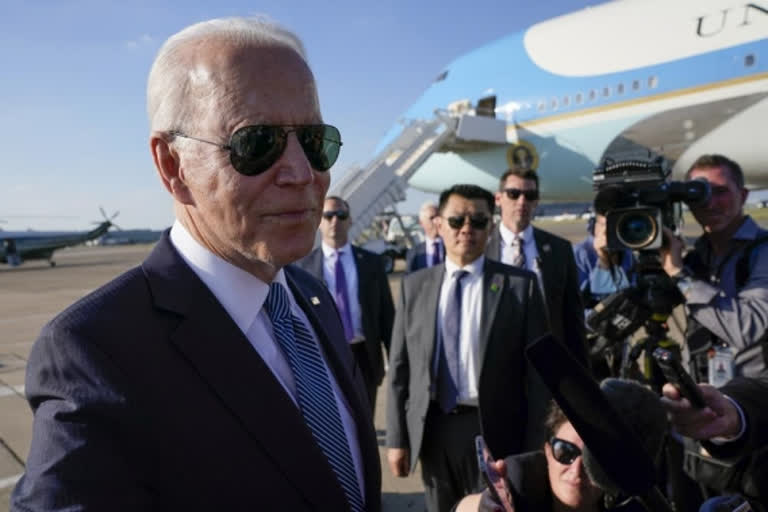Brussels:President Joe Biden makes his entrance at a NATO summit aiming to consult European allies on efforts to counter provocative actions by China and Russia while highlighting the U.S. commitment to the 30-country alliance that was frequently maligned by predecessor Donald Trump. The summit Monday comes as Biden tries to rally allies for greater coordination in checking China and Russia, two adversaries whose actions on economic and national security fronts have become the chief foreign policy concerns in the early going of the Biden presidency.
Biden will use his time at the summit to underscore the U.S. commitment to Article 5 of the alliance charter, which spells out that an attack on one member is an attack on all and is to be met with a collective response. “I will make it clear that the United States’ commitment to our NATO alliance and Article 5 is rock solid,” Biden told U.S. troops in the United Kingdom last week on the first stop of his eight-day European trip. “It’s a sacred obligation.”
The White House said the communique to be signed by alliance members at the end of the NATO summit is expected to include language about updating Article 5 to include major cyber attacks — a matter of growing concern amid a series of hacks targeting the U.S. government and businesses around the globe by Russia-based hackers. The update will spell out that if an alliance member needs technical or intelligence support in response to a cyber attack, it would be able to invoke the mutual defense provision to receive assistance, according to White House national security adviser Jake Sullivan.
Read:Biden heads to Brussels for NATO talks
The president will begin his day meeting with leaders of the Baltic states on NATO’s eastern flank regarding the “threat posed by Russia,” China and the recent air piracy in Belarus, according to Sullivan. He’ll also meet with NATO secretary Jens Stoltenberg.
Biden’s itinerary in Europe has been shaped so that he would first gather with Group of Seven leaders for a three-day summit on the craggy shores of Cornwall and then with NATO allies in Brussels before his much-anticipated meeting with Russian President Vladimir Putin in Geneva on Wednesday.
At the G-7, leaders sought to convey that the club of wealthy democracies — Canada, France, Germany, Italy, Japan, the United Kingdom and the United States — is a better friend to poorer nations than authoritarian rivals such as China and Russia. The G-7 meeting ended with a communique that called out forced labor practices and other human rights violations impacting Uyghur Muslims and other ethnic minorities in the western Xinjiang province. The president declined to discuss private summit negotiations over the provision, but said he was “satisfied” with the communique, although differences remain among the allies about how forcefully to call out Beijing.
Read:Biden says 'very gracious' queen 'reminded me of my mother'
Biden is focused on building a more cohesive bond between America and allies who had become wary of U.S. leadership after enduring four years of Trump’s name-calling and frequent invectives about the relevance of multilateral alliances like NATO. The last administration was at odds with some leading NATO members, including Britain, Germany and France, over Trump’s 2018 decision to pull out of the Iran nuclear agreement that was brokered during the Obama administration. The accord limited Iran’s uranium enrichment program in exchange for an easing of sanctions.
Trump and other critics felt the deal gave Tehran too many economic benefits without doing enough to prevent Iran from eventually developing a nuclear weapon. The Biden administration is now seeking a path to resurrecting the accord. Trump also complained that the NATO alliance allows “global freeloading” countries to spend less on military defense at the expense of the U.S. and dismissed the alliance as “obsolete.”
